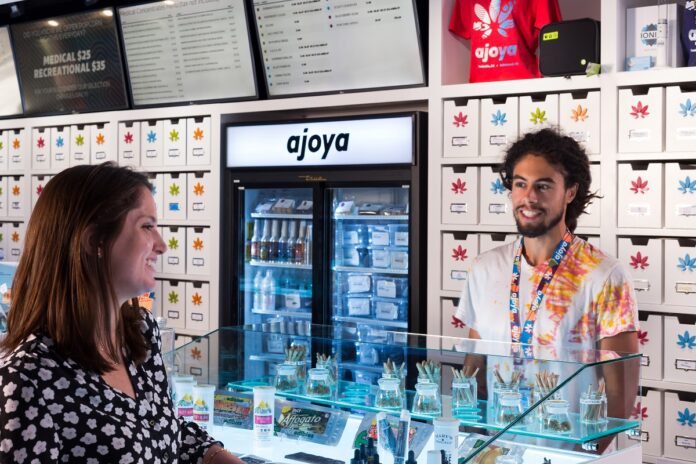In 2014, The Denver Post art critic Ray Mark Rinaldi wrote, “Pot shops looked a lot like bail-bond operations or check-cashing centers. Design was the last thing on the mind of retailers.” But Ajoya’s clean, space-station aesthetic and welcoming vibes, he noted, represented something fresh; an early glimpse at the future of sophisticated cannabis retail, where design and dialogue open the door to a much broader demographic.
Based in Louisville, Colorado, Ajoya was founded by brothers Joey and Shaun Gindi, who by that point were veterans in Colorado cannabis. “Shaun and I got into cannabis back in 2009, which was pre-enforcement-division, pre-regulation, and all of that,” Joey Gindi said. “We got started in the ‘compassionate pain management’ era of cannabis.”
At the time, they owned a fairly typical dispensary, but they could see the aesthetic and tone of the state’s cannabis shops were holding everyone back from reaching consumers now known as “cannacurious.”
“A lot of the retail spaces out there were very plant-focused,” Gindi said. “By that, I mean they were very much focused on the existing cannabis demographic. No one was really considering the wider audience that needed a different kind of experience.”
“Everything we do comes back to education.”
Joey Gindi, co-founder, Ajoya
With the troublesome marriage between stoner culture and the plant itself beginning to dissolve and public interest in cannabis’s potential to treat many common health issues increasing, the Gindi brothers spotted an opening. “Shaun and I asked ourselves, ‘How can we create the kind of space that makes new consumers feel welcomed and comfortable to shop and get their questions answered? What will the next two, three, four waves of consumers be looking for?’”
For the Gindis, the answer started with intentional interior design that challenged outdated perceptions. “I went to school for architecture and had just graduated, so I was very familiar with physical space and how that creates and dictates a person’s experience,” Gindi said. “While architecture wasn’t necessarily the path I wanted to go down professionally, I was able to apply my understanding of it when we opened the Ajoya stores.”

The pair tapped renowned Denver architecture firm Roth Sheppard to help them bring their concept to life. Jeff Sheppard, the firm’s principal architect, took the lead. Ajoya was the first dispensary in his extensive, award-winning portfolio, which primarily consists of high-end retail and restaurants. Sheppard, like many of the maverick architects who had the spirit to explore the possibilities in a new industry, was drawn to cannabis as a blank canvas and an opportunity to create a space that challenged outdated perceptions.
“There is still somewhat of a stigma that marijuana is for hippies,” Sheppard told Inc. in 2016, shortly after Ajoya’s first store opened. “The concept of Ajoya was to escape that stigma and elevate the perception of a high-quality product by creating a minimalist background for it.”
Sheppard was tasked with helping the brothers create a cannabis retail space that was warm and inviting, and encouraged informed dialogue between customers and staff members. To achieve this, he utilized some tried-and-true retail interior design tricks. Blue lighting deployed strategically throughout the store is meant to enliven consumers’ minds, while rounded edges and circles—the pill-shaped bar, the spacious seating area with white ottomans—is meant to evoke positivity.
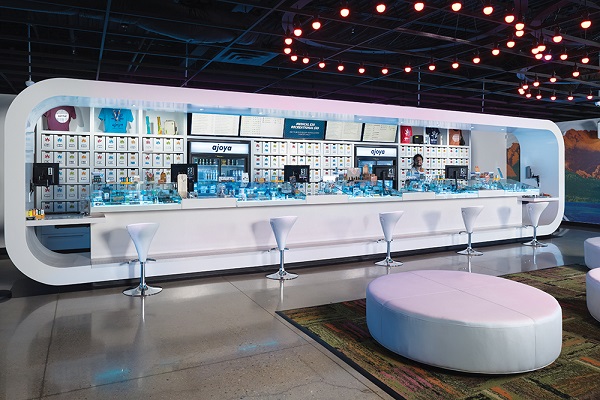
“From a design perspective, we wanted people to be able to walk in and feel like it was transparent right away,” said Gindi. “We didn’t want to wall off the shop floor from the entrance like the other stores, like there was something to hide. When you open the door to Ajoya, you can see everything. You can see the bar, you can see the staff, you can see the receptionist, you can see the whole floor. There is nothing behind any walls, much like a traditional retail store.”
After being checked in on the shop floor, customers may lounge in the waiting area on plush, custom-designed white ottomans or simply chill around the periphery and check out the cases of glassware and apparel.
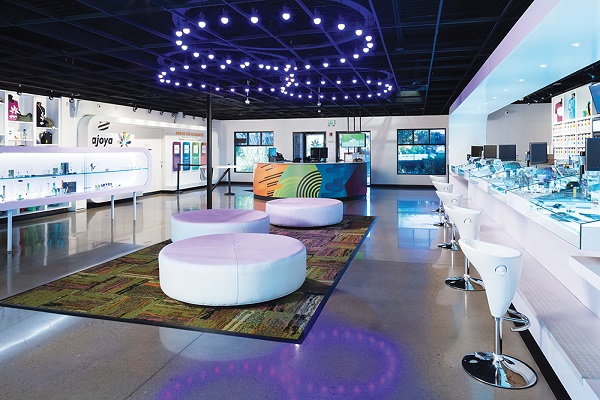
The ten-foot-long, stark white bar is the most visually arresting feature of the shop. Sheppard was inspired by the layout and customer-staff relationship found in restaurant bars, where customers can take a seat, peruse a menu, and speak directly to a staff member without feeling rushed. The stools at Ajoya’s bar are a novel and important touch. The shop invites customers to post up and take as long as they need to feel comfortable with the decisions they are making, much like the Genius bars in Apple Stores. While MedMen most eagerly claimed the “Apple Store of weed” moniker, Ajoya comes a lot closer to the concept in terms of its design aesthetic and lengthy consultation with customers.
“Everything we do comes back to education,” said Gindi, explaining customers spend an average of eight to ten minutes with a budtender before making a purchase. “Even if someone comes in and knows what they want, we will still try to educate them about different products and present them with other ways to get the experience they’re looking for.”
In 2020, Ajoya plans to build on its commitment to education by opening dedicated spaces inside the stores, though Gindi admits they’re “going to have to get a little creative now with [COVID-19] and everything. We really want to have organizations from outside Ajoya and people that we’ve worked with over the years come to the store to offer in-depth information sessions for consumers looking to understand how cannabis can improve their quality of life.”
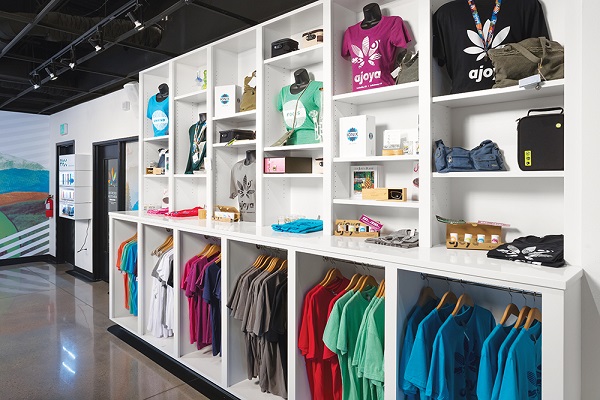
The Ajoya team places considerable value on developing trust with customers. They believe by providing customers with the best information from the most credible sources, staff can develop the kind of lasting relationships that keep businesses thriving for years.
“There’s so much about this plant people don’t know, and that’s being made worse by the sheer volume of misinformation out there,” Gindi said. “What I love about having the ability to educate people inside a dispensary is we can get some accredited people to speak about cannabis and have consumers see the actual products the educator is talking about. That makes everything much more tangible for new consumers.”
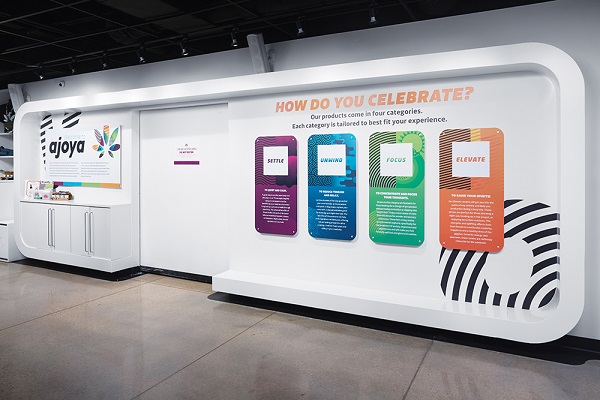
The brothers are in the middle of a capital raise to expand the Ajoya brand by entering new states and fleshing out an effect-based product line that will allow them to deliver targeted recommendations. But even as they grow and build upon their successes, the pair keep encouraging themselves to ask fundamental questions about how the plant is perceived and how negative perceptions can be overcome.
“How can cannabis be seen as just another wellness tool? How can cannabis be used in your life to help enhance what you already do or support you with something you struggle with? These are the big questions we keep asking ourselves,” said Gindi. “They keep us focused on the customer experience and striving to improve it.
“I genuinely believe there are medicinal benefits for everybody,” he continued. “It just depends on what they’re using cannabis for.”







